On November 8, the Ho Chi Minh City Department of Health informed about a mass food poisoning case after eating bread at Ms. Bich's Toad Bread shop (Nguyen Thai Son Street, Hanh Thong Ward).

Accordingly, as of the morning of November 8, 4 hospitals had reported to the City Department of Health with 83 cases of suspected bread poisoning ( 175 Military Hospital recorded 47 cases; Tam Anh General Hospital, Ho Chi Minh City 16 cases; Gia Dinh People's Hospital 19 cases, Binh Dan Hospital 1 case). Of these, 47 patients were discharged.
Gia Dinh People's Hospital alone received 19 cases, including 1 case with symptoms of severe abdominal pain, vomiting and diarrhea many times and had a positive blood culture result for Salmonella bacteria.
Currently, most of the poisoning patients at hospitals have stabilized, some have been discharged, the rest continue to be treated according to the regimen issued by the Department of Health.
Initially, clinical and paraclinical data of most patients with food poisoning after eating bread were consistent with enteric bacterial agents, most likely Salmonella.
The hospitals that admitted and treated the patients have coordinated to provide information to the Ho Chi Minh City Department of Food Safety to serve the tracing and verification work. It is known that the Department of Food Safety has temporarily suspended the operation of the related facility to investigate, collect food and environmental samples, and conduct professional steps to determine the cause of the poisoning according to its authority.

Ho Chi Minh City Department of Health directed hospitals to ensure admission, classification and treatment according to the food poisoning treatment regimen issued by the Department of Health.
Previously, on April 29, 2025, the Ho Chi Minh City Department of Health issued a treatment regimen for food poisoning and organized training for all hospitals in the area to unify how to handle suspected cases of food poisoning.
According to experts, Salmonella is a type of bacteria that can grow in many types of food. Salmonella can cause serious intestinal infections, which are especially dangerous for young children, the elderly, and people with weakened immune systems.
Foods that are often susceptible to contamination include chicken, pork, fresh milk, eggs, raw vegetables, clams, mussels, oysters and some spices. Notably, when food is contaminated with Salmonella, its color, taste and texture remain almost unchanged, making it difficult for consumers to detect by sensory means even though the level of contamination can be very high.
People infected with Salmonella often have initial symptoms such as: prolonged high fever, headache, fatigue, loss of appetite, diarrhea, vomiting... These symptoms usually appear from 6 hours to 6 days after eating contaminated food and last 4-7 days.
Source: https://cand.com.vn/y-te/xac-dinh-tac-nhan-gay-ngo-doc-83-nguoi-sau-khi-an-banh-mi-i787412/





![[Photo] Cutting hills to make way for people to travel on route 14E that suffered landslides](https://vphoto.vietnam.vn/thumb/1200x675/vietnam/resource/IMAGE/2025/11/08/1762599969318_ndo_br_thiet-ke-chua-co-ten-2025-11-08t154639923-png.webp)




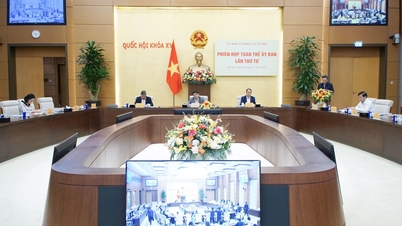







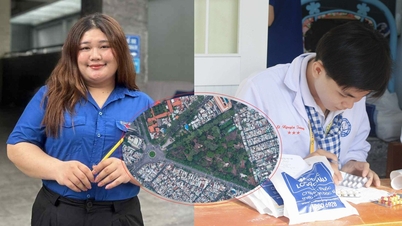







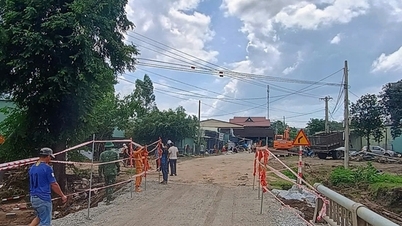
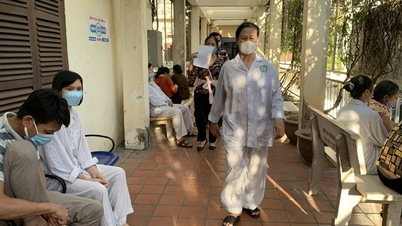









![[Video] Hue Monuments reopen to welcome visitors](https://vphoto.vietnam.vn/thumb/402x226/vietnam/resource/IMAGE/2025/11/05/1762301089171_dung01-05-43-09still013-jpg.webp)














































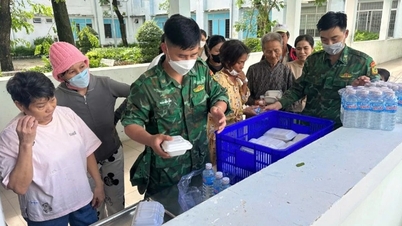
















Comment (0)